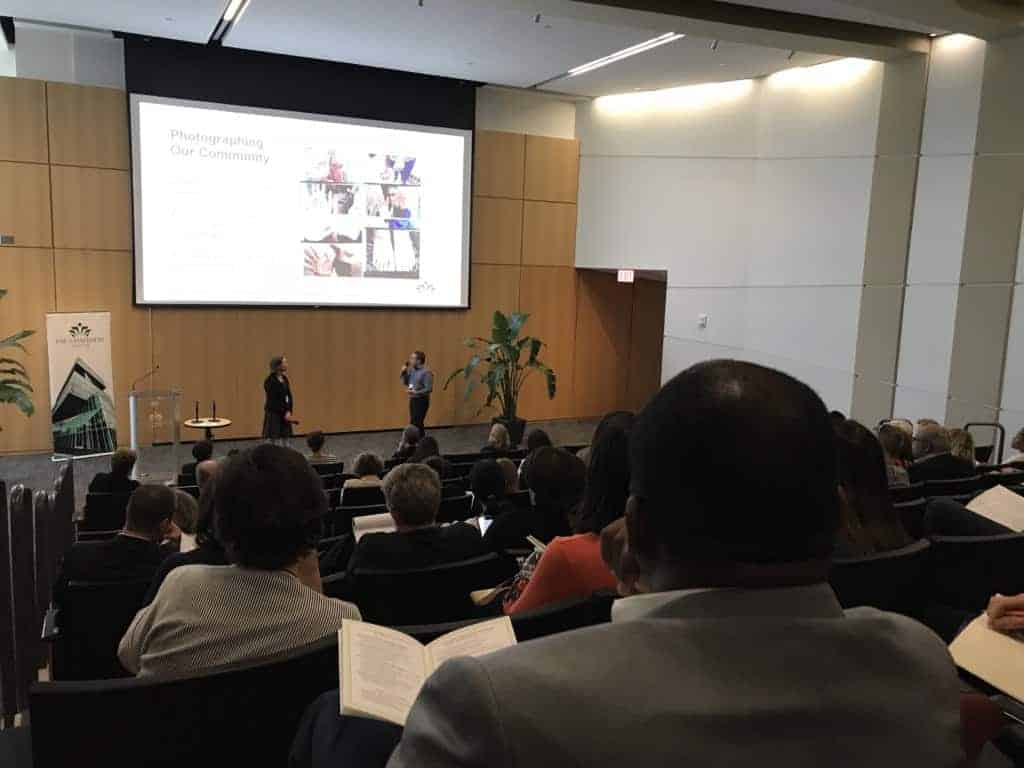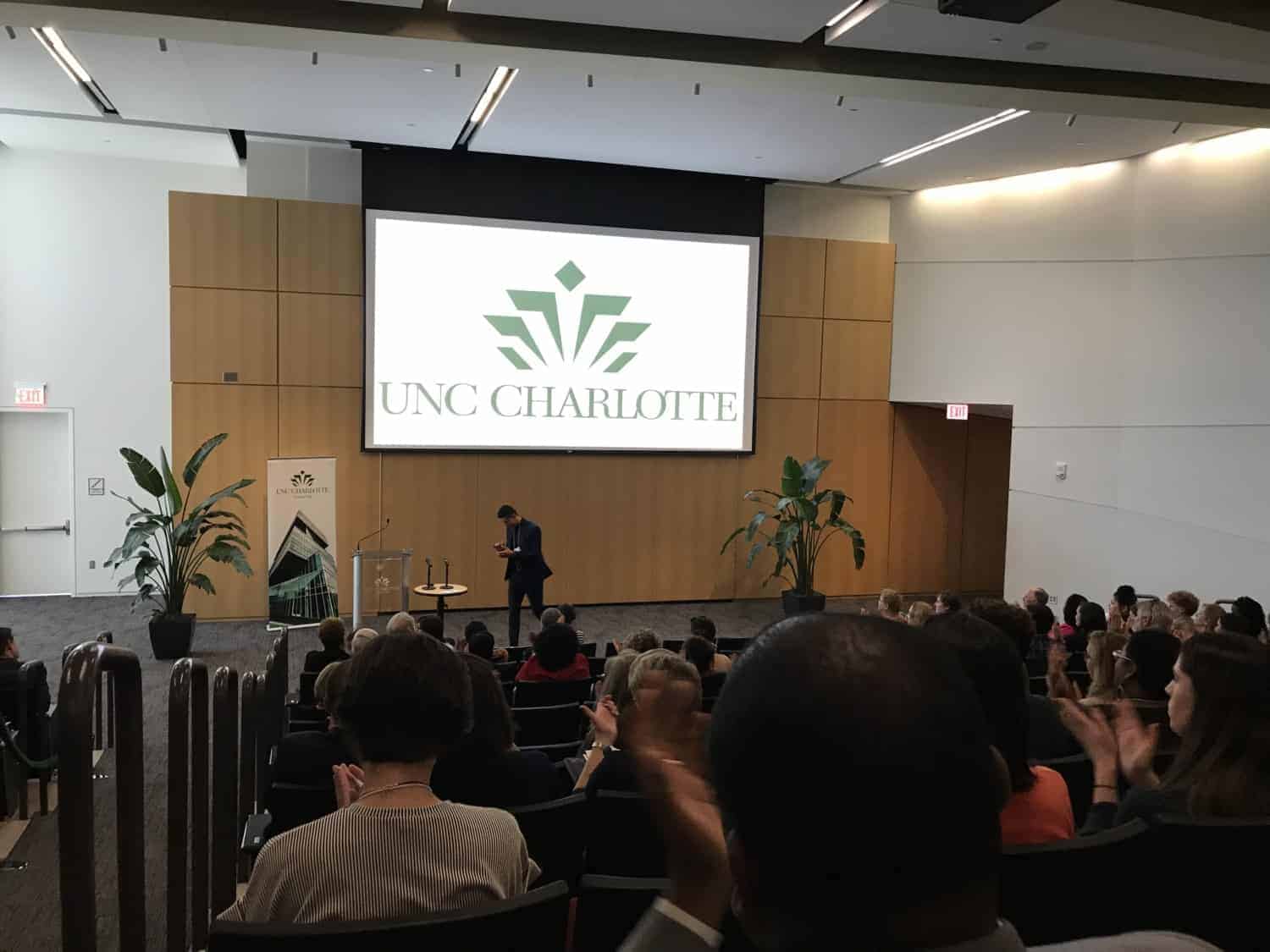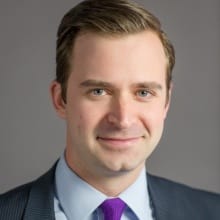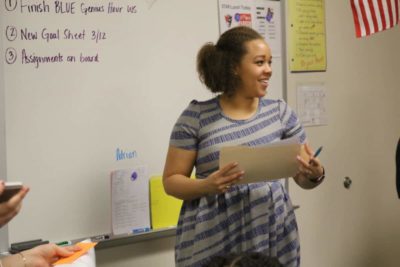A little more than a year after the Charlotte-Mecklenburg Opportunity Task Force issued its report identifying causes of and solutions to this community’s economic and social mobility crisis, Herrison Chicas stood in front of a crowded auditorium and recalled digging through other people’s trash.
Chicas, a Salvadoran-American spoken word artist, talked through tears as he shared the shame he felt while sifting through garbage for aluminum cans to sell for a few bucks. He talked about the sticky soda and stale beer that would spill onto him.
And then he told roughly 200 community leaders about the positive influences in his life—a school librarian who knew Chicas needed access to books to improve his English, a soccer coach who instilled leadership lessons, a counselor who helped fill out college scholarship applications.
It was a powerful testimony about the importance of social capital to change lives, one that underscored recommendations from the task force about the divide between young Charlotteans who have access to opportunity and those who do not.
Chicas’ performance was part of UNC Charlotte’s Opportunity Showcase, an afternoon seminar and exhibition focused on social and economic opportunity, and community partnerships that are working toward closing the gaps between Charlotteans. “There is no magic potion we can take, no magic wand we can wave,” UNC Charlotte Chancellor Philip Dubois told the audience. “We are in this for the long haul.”
The event highlighted programming and research conducted by UNC Charlotte faculty and staff that seeks to address mobility through everything from photography classes to research about family homelessness.
“There is a strong link between housing and educational outcomes,” said Drew Reynolds, a UNC Charlotte professor who spoke to the crowd about his research on homelessness. In a given school year, nearly 4,400 students are classified as homeless—but only 11 percent of those children live in shelters. The remainder live in hotels or “doubled up” with relatives or neighbors. “Homelessness is something that is often invisible,” Reynolds said.
Using his experience in social work, Reynolds put together a working group on family homelessness that is using cross-sector data from schools, social service providers, nonprofits that serve the homeless, and the criminal justice system. That sharing of data enables providers to identify and better serve homeless families in Charlotte-Mecklenburg. The goal, Reynolds said, is to create “actionable intelligence for social policy.”


Another UNC Charlotte professor, education instructor Anne Cash, partnered with her husband, Micah Cash who is a visual artist and director of community engagement at The Light Factory, a local gallery, to bring cultural education to a low income neighborhood.
Just two percent of households in the Grier Heights community had attended a cultural event in Charlotte five years ago. Other, more affluent neighborhoods notched household attendance rates as high as 70 percent.
The Cashes partnered with United Way to provide cameras to nearly two dozen kids between ages 11 and 19 for classes designed to empower the children and teens to tell their personal and community stories. Those who attended a majority of the summertime workshops were able to keep the camera.
“The last thing we need to do is take that tool away,” Micah Cash said.
An underlying theme of the event was that small groups of people can chip away at the county’s bigger economic mobility challenge; grand solutions are important, but so are personal actions.
When he started his performance, Chicas told the audience about a quote that’s posted in his bedroom, a phrase that serves as an alarm clock, motivating him to start each day.
“We’ve come a long way,” he said, “but we have a long way to go.”



